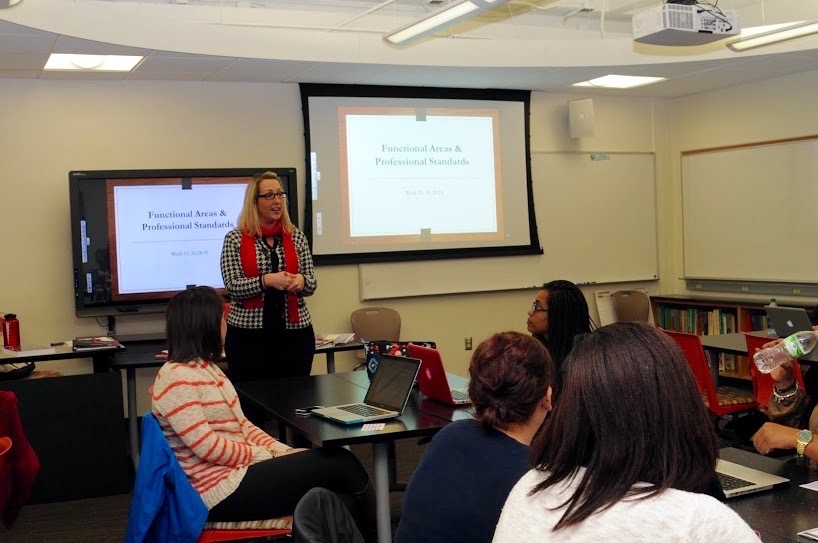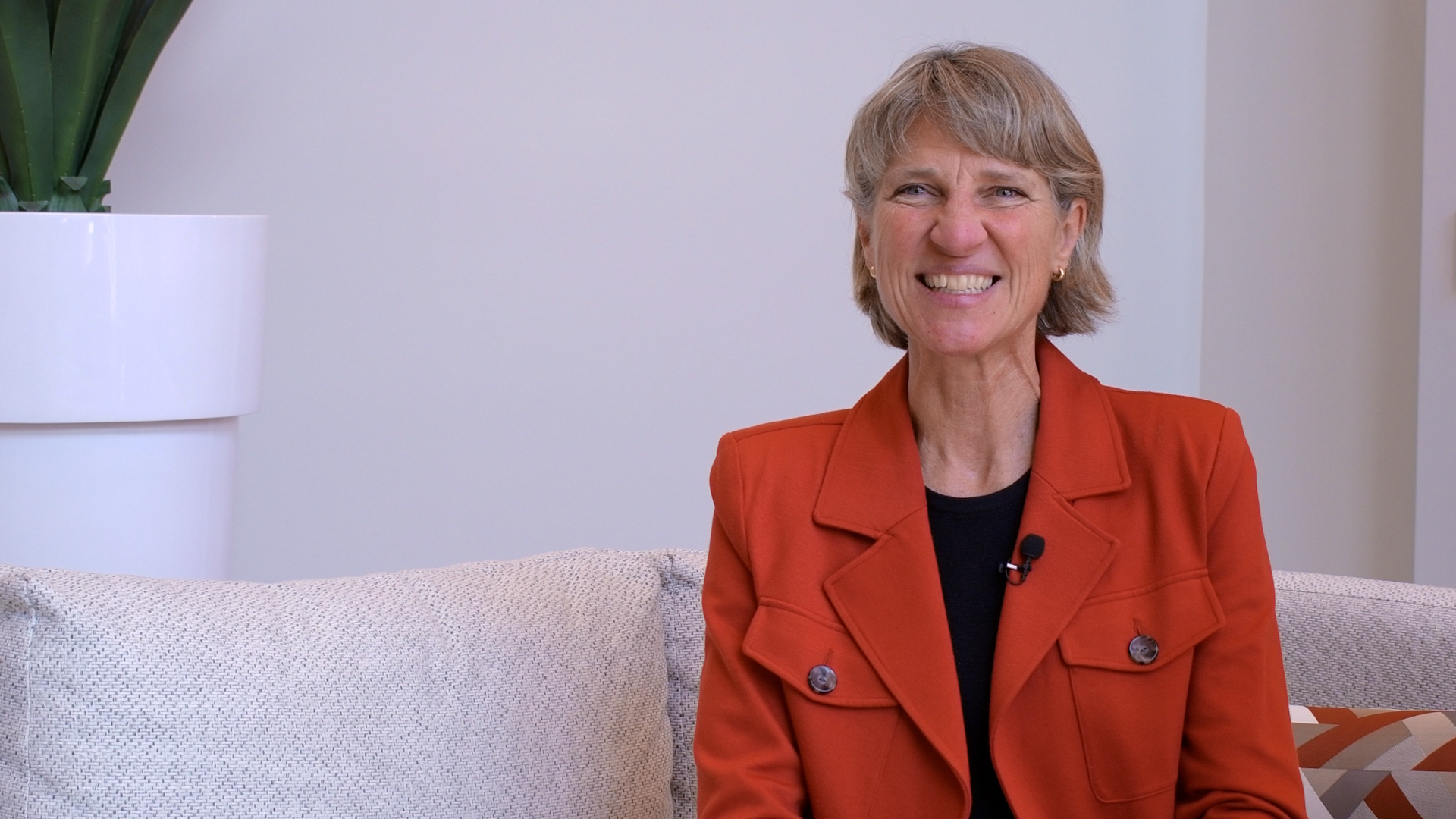5 Questions with Alicia Keating Polson on the Higher Education Ph.D. Program

Alicia Keating Polson is a current Ph.D. student in the Educational Leadership, Policy and Human Development department studying Higher Education.
After working professionally in higher education and student affairs for ten years, Alicia enrolled in the Higher Education Ph.D. program in the fall of 2014.
As a student who understands the highly immersive and hands-on nature of our Ph.D. programs, we’ve asked Alicia to share her experiences in the Higher Education program thus far.
1.Why did you chose the Higher Education Ph.D. program at NC State?
I aspire to be an upper-level student affairs administrator, so in order to do this successfully, I knew I had to further my education.
It was important to me that a Higher Education program had a rigorous curriculum, which NC State certainly provides. The focus on research at NC State was a strong factor for me as I am drawn to the concept and prospect of research and understand its necessity to future success.
2. How do you feel that the Higher Education Ph.D. program is preparing you to enter the workplace?
I feel the Higher Education program specifically, as well as the Ph.D. programs in the College of Education generally, well-equip students to serve as scholar-practitioners.
I have ten years of experience working in higher education and student affairs, so I have gained tremendous work and leadership experience in the field. However, I did not feel equipped to use research and scholarship in my daily work as a practitioner prior to entering the program.
Through my first year in the doctoral program here at NC State, I am truly learning to integrate research and scholarship into my work and I look forward to returning to the field as an exemplary scholar-practitioner and leader.
3. What has been your best experience in the program thus far?
I am taking Advanced Qualitative Research and Data Analysis in Education this semester with Dr. Meghan Manfra and honestly cannot speak highly enough about this class. Dr. Manfra teaches in a workshop format where students come prepared to engage in discussion about the week’s material and are able to practice new skills while conducting fieldwork in class.
Conducting qualitative research is no easy feat. Qualitative research takes careful thought, intentional planning, significant time, and complete engagement on the part of the researcher. These are characteristics we learn about in our coursework, however, it’s not until you’re entrenched in actual data collection and analysis that you truly understand the hard work this type of inquiry entails.
Through the Advanced Qualitative Research and Data Analysis in Education course, I had the opportunity to work as part of a research team, where we could practice our skills as novice qualitative researchers. We studied Talley Student Union, a building on NC State’s campus that recently took on a major renovation and expansion project, estimated to cost $120 million. Our team was able to implement many of the strategies we read about each week and get a first-hand feel for what it’s like to conduct qualitative research as a group.
Every week I learn a tremendous amount from this class and I am so grateful for Dr. Manfra’s knowledge, as well as her style of teaching.
4. How do you personally work with College of Education faculty?
An excellent faculty experience I have had this year is teaching the EAC 540: Foundations of Higher Education & Student Affairs course with Dr. Alyssa Rockenbach. This is a required class for the master’s students in the Higher Education program and I work alongside two faculty members, Dr. Rockenbach and Dr. Jaeger, and one other student, Alessandra Dinin, to teach the course.
Even as a student teacher, I have been treated as an equal in our 4-person weekly class planning meetings. Alessandra and I work very closely with Dr. Rockenbach and Dr. Jaeger on the course curriculum and class content and they are both hugely supportive of new ideas we bring to the table.
Dr. Rockenbach and Dr. Jaeger have been so empowering to Alessandra and I through this teaching experience and I have learned so much from the example they provide teaching in the classroom, as well as the space they provide us to develop our own teaching styles.
5. What would you tell a student who is planning to apply to one of College of Education’s Ph.D. programs?
I work as the graduate assistant for the Higher Education program, so I communicate with prospective students on a daily basis. I often get asked what is distinct about our Ph.D. programs and I am proud to share that there are two things that distinguish our programs from others.
First is the strength of our faculty, which I wrote about earlier.
Second is the love and support you receive from fellow doctoral students within the Higher Education program, as well as doctoral students in the College of Education as a whole.
One of the things I am most grateful for in this program is the relationship I’ve been able to establish with my fellow students. As I talk to prospective students about our program, I love to enthusiastically tell them that amazing faculty and peer relationships are two things they can surely expect here at NC State.
Learn more about our reimagined doctoral programs and apply now.
- Categories:


